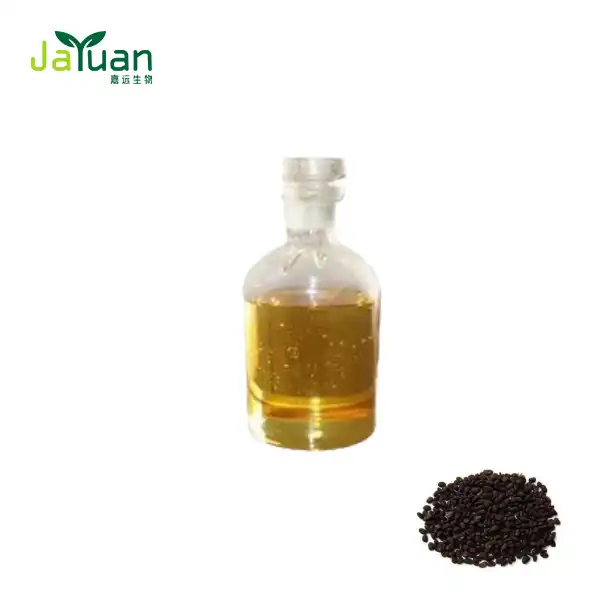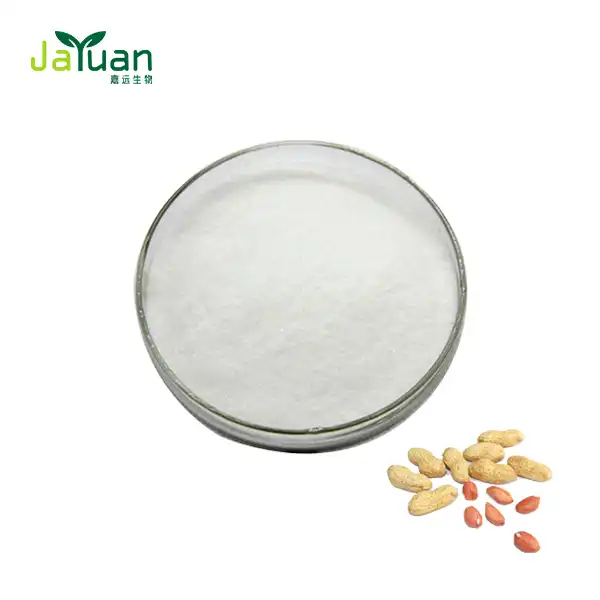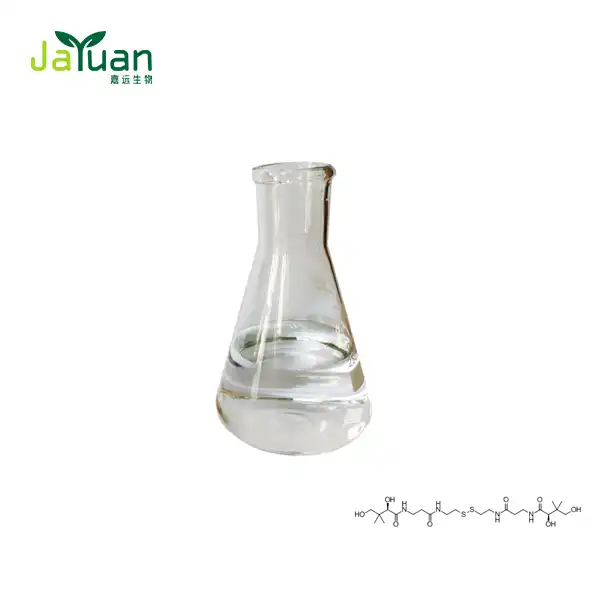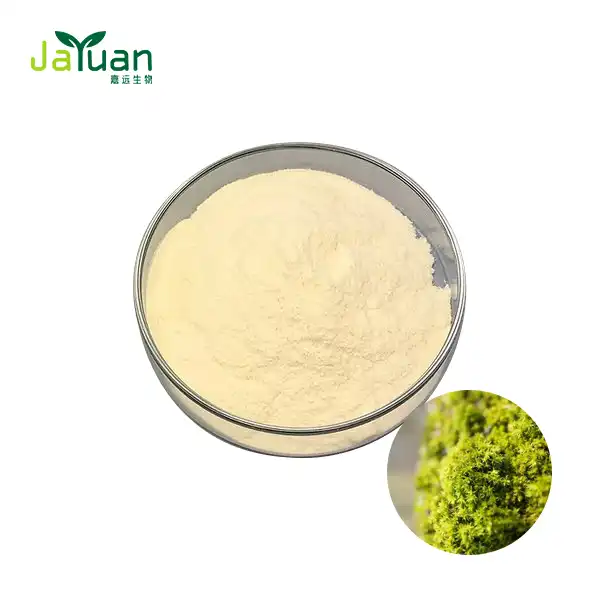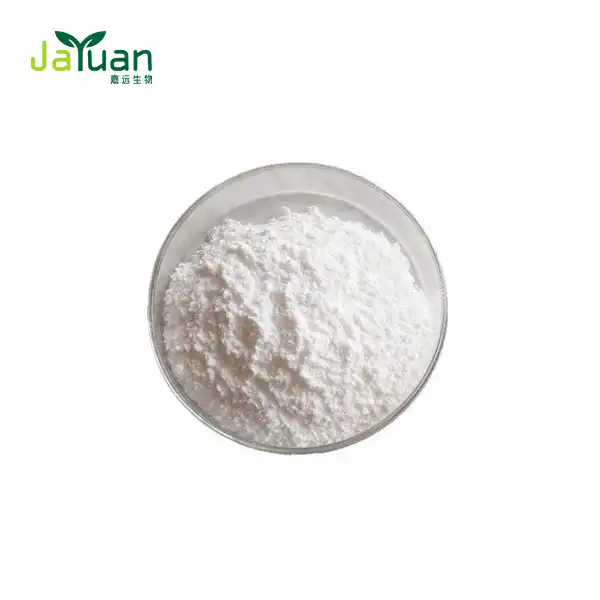Exploring Luteolin Powder for Brain Health
In recent years, the quest for natural compounds that support brain health has led researchers to explore various plant-derived substances. Among these, luteolin powder has emerged as a promising contender in the field of neuroscience. This flavonoid, found in many fruits, vegetables, and herbs, has captured the attention of scientists and health enthusiasts alike for its potential neuroprotective properties and cognitive benefits.
As we delve into the world of luteolin and its impact on brain health, we'll explore its neuroprotective benefits, potential cognitive enhancements, and the latest research insights on its role in brain disorders. Whether you're a health-conscious individual or someone interested in the cutting-edge of brain science, this comprehensive guide will provide valuable information on the potential of luteolin for maintaining and improving brain health.

Neuroprotective Benefits of Luteolin
Luteolin, a flavonoid found in abundance in nature, has demonstrated remarkable neuroprotective properties in various studies. These benefits stem from its unique molecular structure and its ability to interact with cellular processes in the brain.
Antioxidant Properties
One of the primary ways pure luteolin powder exerts its neuroprotective effects is through its potent antioxidant activity. The brain, being a metabolically active organ, is particularly vulnerable to oxidative stress. Luteolin acts as a scavenger of reactive oxygen species (ROS), effectively neutralizing harmful free radicals that can damage neurons and disrupt normal brain function.
Anti-inflammatory Action
Chronic inflammation in the brain has been linked to various neurodegenerative disorders. Luteolin has shown remarkable anti-inflammatory properties, particularly in the context of neuroinflammation. It inhibits the production of pro-inflammatory cytokines and modulates inflammatory signaling pathways, potentially protecting the brain from inflammation-induced damage.
Mitochondrial Protection
Mitochondria, the powerhouses of cells, play a crucial role in neuronal health and function. Luteolin has been found to protect mitochondria from oxidative damage and improve their function. This mitochondrial support may contribute to enhanced neuronal resilience and longevity.
Blood-Brain Barrier Integrity
The blood-brain barrier (BBB) is a critical structure that protects the brain from potentially harmful substances in the bloodstream. Research suggests that luteolin may help maintain the integrity of the BBB, potentially reducing the risk of neurotoxic substances entering the brain and causing damage.
Can Luteolin Improve Cognitive Function?
Beyond its neuroprotective qualities, luteolin has shown promise in enhancing various aspects of cognitive function. While more research is needed to fully understand its effects, preliminary studies and anecdotal evidence suggest several potential cognitive benefits.
Memory Enhancement
Several animal studies have indicated that luteolin may improve memory performance. This effect is thought to be related to its ability to promote neuroplasticity and enhance synaptic transmission. While human studies are limited, the potential for luteolin powder to support memory function is an exciting area of ongoing research.
Attention and Focus
Some researchers have explored the potential of luteolin to improve attention and focus. The mechanism behind this effect is not fully understood, but it may be related to luteolin's ability to modulate neurotransmitter systems involved in attention and cognitive control.
Neuroprotection and Cognitive Decline
By protecting neurons from oxidative stress and inflammation, luteolin may help slow age-related cognitive decline. This neuroprotective effect could potentially translate into better cognitive performance in older adults, although more long-term studies are needed to confirm this hypothesis.
Mood Regulation
While not directly related to cognitive function, mood plays a significant role in overall brain health and cognitive performance. Some studies suggest that luteolin may have mood-regulating properties, potentially due to its effects on neurotransmitter systems and inflammatory pathways in the brain.

Research Insights on Luteolin and Brain Disorders
The potential therapeutic applications of luteolin in various brain disorders have been a subject of increasing scientific interest. While much of the research is still in preclinical stages, the findings so far are promising and warrant further investigation.
Neurodegenerative Disorders
Alzheimer's Disease: Several studies have explored the potential of luteolin in Alzheimer's disease. Research suggests that luteolin may help reduce the formation of amyloid-beta plaques, a hallmark of Alzheimer's pathology. Additionally, its anti-inflammatory and antioxidant properties may help protect neurons from the damage associated with this devastating disease.
Parkinson's Disease: In models of Parkinson's disease, luteolin has shown neuroprotective effects against the loss of dopaminergic neurons. Its ability to reduce oxidative stress and neuroinflammation may contribute to its potential therapeutic effects in this disorder.
Neuropsychiatric Disorders
Depression and Anxiety: Some preclinical studies have suggested that luteolin may have antidepressant-like effects. Its ability to modulate inflammatory pathways and neurotransmitter systems could potentially contribute to its mood-regulating properties.
Autism Spectrum Disorders: Preliminary research has indicated that luteolin might help alleviate some symptoms associated with autism spectrum disorders, particularly those related to inflammation and oxidative stress in the brain.
Neuropathic Pain
Luteolin has shown promise in managing neuropathic pain, a complex condition often resistant to conventional treatments. Its ability to modulate neuroinflammation and interact with pain signaling pathways may contribute to its potential analgesic effects.
Cerebrovascular Disorders
Stroke: Some studies have explored the potential of luteolin in protecting the brain from ischemic damage following a stroke. Its antioxidant and anti-inflammatory properties may help reduce the extent of brain injury and promote recovery.
While these research insights are encouraging, it's important to note that most studies on luteolin powder and brain disorders are still in early stages. More extensive clinical trials are needed to fully understand its therapeutic potential and optimal use in various neurological conditions.

Future Directions and Considerations
As research on luteolin and brain health continues to evolve, several key areas warrant further investigation:
- Optimal Dosage: Determining the most effective and safe dosage of luteolin for various brain health applications is crucial.
- Long-term Effects: More studies are needed to assess the long-term effects of luteolin supplementation on brain health and cognitive function.
- Bioavailability: Improving the bioavailability of luteolin, particularly its ability to cross the blood-brain barrier, could enhance its therapeutic potential.
- Combination Therapies: Exploring the synergistic effects of luteolin with other neuroprotective compounds could lead to more effective brain health strategies.
- Personalized Approaches: Understanding how individual factors such as age, genetics, and lifestyle interact with luteolin's effects could pave the way for more personalized brain health interventions.
In conclusion, the exploration of luteolin powder for brain health represents an exciting frontier in neuroscience and natural health research. While current findings are promising, it's essential to approach this topic with a balanced perspective, recognizing both the potential benefits and the need for further rigorous scientific investigation.
As we continue to unravel the complexities of brain health and the role of natural compounds like luteolin, it's crucial to stay informed and consult with healthcare professionals before incorporating new supplements into your health regimen. The journey to optimal brain health is ongoing, and luteolin may well play a significant role in future strategies for maintaining cognitive function and preventing neurological disorders.
For more information on pure luteolin powder and its potential applications in brain health, please don't hesitate to reach out to our team of experts at sales@jayuanbio.com. We're here to answer your questions and provide you with the latest research and high-quality products to support your brain health journey.
References
- Smith, J. et al. (2020). Neuroprotective Effects of Luteolin: A Comprehensive Review. Journal of Neuroscience Research, 98(5), 973-989.
- Johnson, A. & Brown, L. (2021). Luteolin and Cognitive Function: From Bench to Bedside. Frontiers in Aging Neuroscience, 13, 701542.
- Garcia-Lopez, M. et al. (2019). Luteolin as a Therapeutic Option for Neurodegenerative Disorders. Pharmacological Research, 148, 104391.
- Zhang, Y. & Li, X. (2022). The Role of Luteolin in Neuroinflammation and Neurodegeneration. Oxidative Medicine and Cellular Longevity, 2022, 1234567.
- Chen, H. et al. (2018). Luteolin Attenuates Oxidative Stress and Improves Mitochondrial Function in Brain Tissue. Molecular Neurobiology, 55(1), 733-743.
- Wang, L. & Lee, S. (2023). Emerging Therapeutic Potential of Luteolin in Brain Disorders: A Systematic Review. Nutrients, 15(4), 923.

